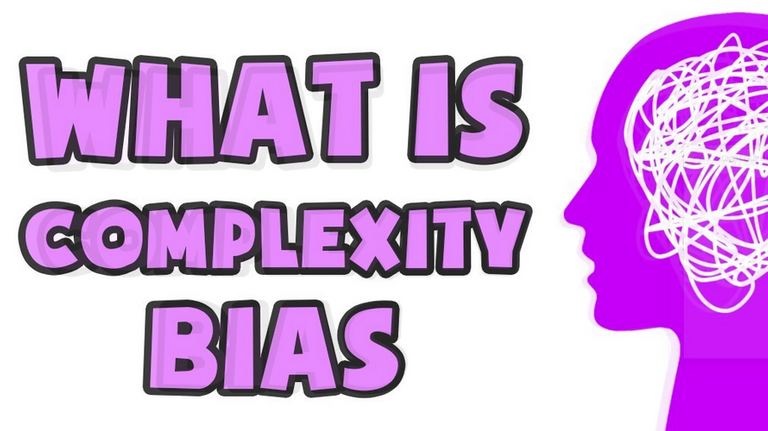
The complexity bias is our tendency to see something as if there are several factors that are difficult to understand when we are faced with something that, in reality, is quite understandable.
Thus, when facing problems - whatever they may be - we generally opt for the most complex solutions. Usually, they are those with countless variables taken into account.
Consequently, we tend to ignore simple solutions. We think they will never work; at the same time, we give undue credibility to complex responses.
Confucius already said:
"Life is very simple, but we insist on making it complicated".
Despite the existence of this behavioral bias, the evolution of species shows us contrary concepts. Samuel W. Williston, a 19th century paleontologist, was the first to notice a historical trend in the reduction of body parts of a living being.
Primitive animals usually had duplicated or multiplied parts of the body, while their later generations, throughout evolution, eliminated unnecessary quantities and developed the parts with greater utility.
In other words, the evolution of species has traced the path in which “more is done with less”.
For example, there were animals that had hundreds of teeth, so they evolved into those whose teeth are specialized (such as incisors, canines and molars). Or skulls that were made up of hundreds of small bones and later came to contain less than 30 bones.
If animals have prioritized simplicity in their evolutionary processes, why are our minds attracted by complexity?
To answer these questions, Morgan Housel, a partner in the Collaborative Fund, cites four reasons.
The first reason points out that simplicity resembles a light walk, while complexity looks like a mental CrossFit. During physical activities, if the series of repetitions does not cause us discomfort or pain, we interpret that we are not exercising correctly.
As with physical exercises, problems that involve simplicity do not cause us mental fatigue. In this way, we tend to appreciate complex problems.
The second reason indicates that we associate size with effort. In other words, the quality of the materials (such as books and reports) is usually linked to the number of pages, as this denotes that the author employed greater dedication to the content.
The third reason is due to our attribution of intelligence to people who approach topics that we do not understand, or that express themselves with elaborate words.
Finally, the fourth reason signals that complexity gives us a sense of control, while simplicity makes an impression of ignorance. For example, the more variables and buttons that are under your control in a system, the greater the feeling of knowledge.
On the other hand, in that same system, if someone asks you about a button whose functionality you are unaware of, you may seem ignorant - even though the button does not perform any essential function for your activity.
Nowadays, in which we have a gigantic database of public data, it is very common to see investors building complex spreadsheets, with thousands of assumptions and variables almost impossible to design with some reasonable level of precision.
We also see investors building theses about companies that are difficult to understand, with totally obscure futures.
It is quite dangerous to make investment decisions based on theses that depend on many variables. A small wrong part of the model can significantly compromise the whole.
Using the words of Charlie Munger:
"Where you have complexity, by nature, you can have fraud and errors".
Therefore, it is recommended to invest in investments in companies that are simple to understand.
As an example, Warren Buffett loves stocks that are so simple and so cheap (close to the amount they can deliver) that they don't require complex valuation in an Excel spreadsheet to make a good buying decision.
Posted Using LeoFinance Beta